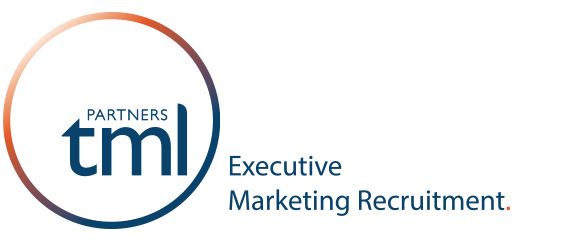
In this article Sophie Evans from tml Partners, takes a more practical view of the impact of AI on marketing talent.
A couple of weeks ago I attended an industry event and when asked about AI the presenter declared:
“AI is like teenage sex, everyone is talking about it and no one is doing it”
It got rapturous laughter, but does seem to have a lot of truth behind it. AI is well covered in the press and is firmly on the radar of many businesses, but some might argue it is the Y2K (if we can cast our minds that far back) or the “Big Data” of 2016/2017.
Certainly the acclaimed marketing professor Mark Ritson seems to agree in his recent article on strategic thinking*
“…The now obligatory new-year marketing predictions were brimming with the need to be more agile, to use artificial intelligence (AI) and big data to employ whatever techno-gimmickry is flavour of the week. I am mightily suspicious of all of the above.”
What does the AI phenomenon mean for the marketing industry in general, and CMOs and marketing directors in their day-to-day roles? Hopefully this article might shed some light.
The more sensationalist viewpoint focuses in on AI taking over our jobs and potentially leaving the human race completely redundant, twiddling their thumbs. Whilst there are certainly some processes that can and will be taken over by AI, one would also argue that AI is only as good as we make it, and the tasks that are fulfilled by AI will serve to free up human resources for more complex work.
There are some industry heavy hitters, such as PwC, who have released reports which have surmised that around 40% of jobs in the USA will be taken over by AI by 2030, and 30% of jobs in the UK. This may well be true in some industries, but within marketing I believe AI is and will continue to be used to support human roles, leading to greater efficiency, and not reduce the human workforce by anywhere near this amount.
Applications of AI
AI is now replacing more laborious and procedure oriented tasks, for example:
- Repetitive or admin oriented tasks in factories;
- Cashier services in certain retail scenarios, such as fast food restaurants or car parks;
- Filing or logging of documents; and many more.
The current travel chaos due to strikes over driver-only trains is yet another example of this.
But in other industries, AI augments the work that is carried out and could never wholly replace human input, for example legal services. This is where I believe AI will support the marketing industry.
AI and Marketing
AI is already embedded in some areas of the marketing industry. The benefits of embracing technology are already being seen and therefore investment in this area is certainly set to continue, one high profile example is Amazon. McKinsey conducted a study that discovered that 35% of Amazon.com’s revenue is generated from its recommendation engine.
Through AI, marketers can:
- Collect information on buying patterns and use these to improve UX;
- Capture customer activity and then cross-reference accordingly;
- Use customised algorithms to hone in on an interested cross section of customers and use this for marketing purposes; and
- Perform more benign, repetitive processes, leaving more free time for a marketer to perform the actions that require human input.
The main advantage of AI is that it allows routine processes to be standardised, resulting in greater efficiency and accuracy. For the technology to be developed, there just needs to be a business case that proves there is a high enough demand for the task to warrant the investment.
Within recruitment, for example, AI has already had a significant impact in automating registrations with impressive CV recognition now fairly standard – there is also much talk about the impact of predictive hiring techniques. But both really support the profession and enhance our services.
Barriers to adoption
Development in this area will likely continue apace and innovative applications of AI for marketers will continue to be implemented. There are, however, a few barriers to adoption which marketing teams need to consider when looking at utilising AI. Firstly, the ever-present threat of hacking. Data security is high on the agenda and as more and more technology is used within organisations this will only increase. This, along with accountability and ownership issues, and the scarcity of expertise actually needed to decode some of the data produced by AI are very tangible challenges. However, aside from these practical challenges, the main issues at present, as cited in the PwC report, relate to budgets and regulations.
Conclusion
Within marketing, AI should be viewed as a useful tool to improve marketing services and assist humans in their day-to-day roles. The sensationalist viewpoint that robots will be replacing humans is not relevant here as the creative and dynamic skills of a marketing professional can’t be replaced by AI. Forward-thinking CMOs are developing teams with the skills not only to undertake the traditional marketing activities, but also the technical acumen to be able to interact with and embrace technological advances that can benefit marketing operations.
So whilst I perhaps wouldn’t recommend tomorrow’s workforce pursue a career as an underwriter or even a para-legal… but as for a future career in marketing – I don’t think there’s ever been a better time.
* https://www.marketingweek.com/2018/01/09/mark-ritson-strategic-thinking/




